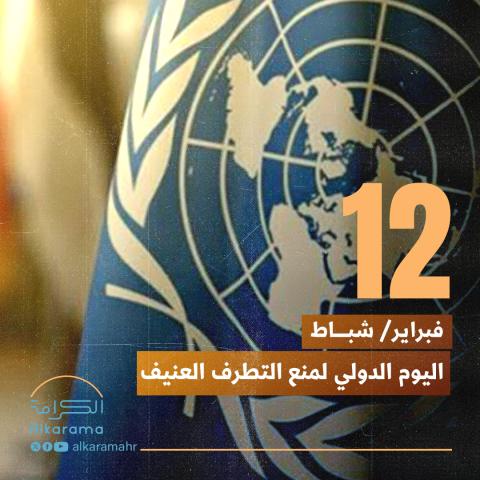
Through its resolution 77/243, the United Nations General Assembly proclaimed February 12 as the International Day for the Prevention of Violent Extremism Leading to Terrorism, with the aim of raising awareness about the threats associated with violent extremism and strengthening international cooperation in this regard.
In this context, the General Assembly reaffirmed the primary responsibility of Member States and their national institutions in combating terrorism. It also underscored the crucial role of intergovernmental organisations, civil society, academia, religious leaders, and the media in preventing violent extremism and countering terrorism.
Furthermore, the resolution reiterated that terrorism and violent extremism, when leading to terrorism, cannot and should not be associated with any particular religion, nationality, civilisation, or ethnic group.
According to the United Nations' literature, violent extremism constitutes a violation of the objectives and principles of the United Nations. It undermines peace, security, human rights, and sustainable development, and no country or region is immune to its effects. As a multifaceted phenomenon lacking a precise definition, violent extremism is neither new nor confined to a specific region, nationality, or belief system. Nonetheless, various actors seek to systematically associate extremism and terrorism with a particular group of people, in a selective approach that contradicts UN principles, historical facts, and reality.
At Alkarama, we firmly believe that promoting human rights and upholding justice are the most civilised and cost-effective means of mitigating the tensions that fuel extremism leading to violence. Conversely, repressive policies and intimidation tactics targeting human rights defenders and organisations working in this field—under any pretext—only serve to exacerbate extremism and erode public trust in the rule of law and judicial institutions.
It is particularly concerning that some authoritarian regimes, especially in the Arab world, resort to enacting legislation with vague definitions of terrorism, deliberately used as tools to suppress any form of peaceful opposition.
Alkarama has taken on the responsibility of documenting these practices and confronting them through reports and complaints submitted to relevant UN human rights mechanisms. We also remind Arab governments of the imperative to review their national legislation to ensure its compliance with international human rights law.
